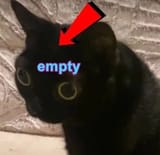>>95896369
>In a fantasy setting, alchemists are mages with a potion-based spellcraft. Instead of yelling "FIREBALL!", they yell "TAKE COVER" and throw a glass bottle full of colorful, swirling liquid, labeled "Do not open"
I was going to respond to this that 'in a fantasy setting an alchemist and a wizard are just the same person', but a potentially interesting comparison occurred to me.
There is a manga/show called "The Ancient Magus's Bride", where there are two very different kinds of 'wizards': the titular magus/magi, and sorcerers/alchemists (translations differ).
A Magus is someone who can see and talk to spirits, and gains power by making magical contracts with fey and gods and the like, and using that borrowed power to influence the world. What they can do is mythic and grand, but largely follows *symbolic* logic more than anything else. What *feels* right even if it doesn't make sense.
Sorcerer-Alchemists are the more relevant part of this dichotomy: they CAN'T see spirits. They have no innate ability to perform magic. But they know it EXISTS, and have spent centuries developing the practices and tools to interact with magic indirectly. They only ever tap into a tiny fraction of the sort of magic that a Magus can wield on a whim, but the sorcerer-alchemists have to be extremely efficient with their use of magic as a result and this leads to them largely having a greater understanding of the finer properties of magic than a magus ever learns because a magus never has *need* to scimp and scrim like that. Necessity is the mother of invention, limitations breed creativity, so on and so forth.
This could be how you handle alchemists alongside wizards: people who exist in a world where magic clearly exists, but have no special gift to use it... and are not going to let that stop them. Researching and creating forms of magic that are dangerous because literally anyone can use them.

